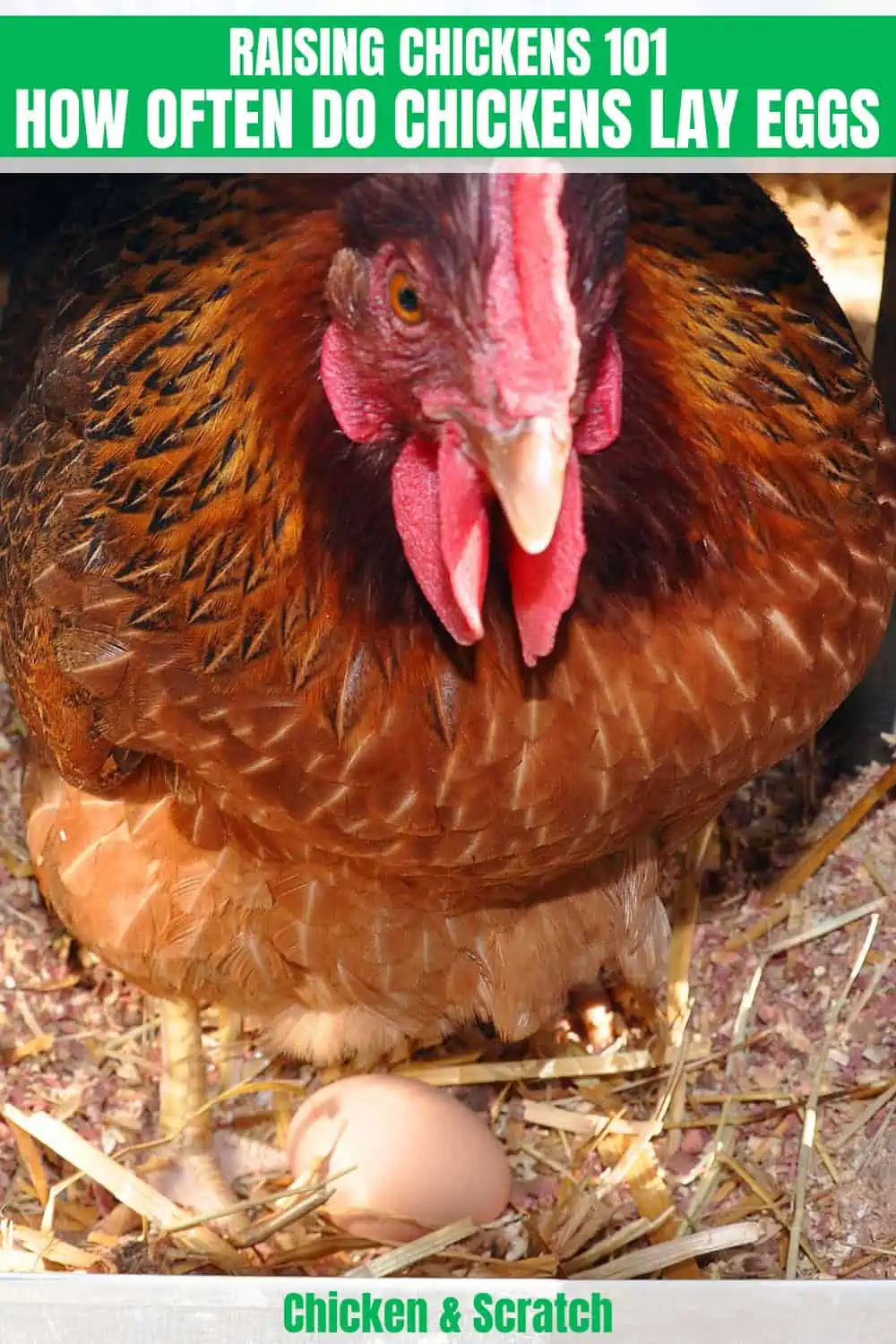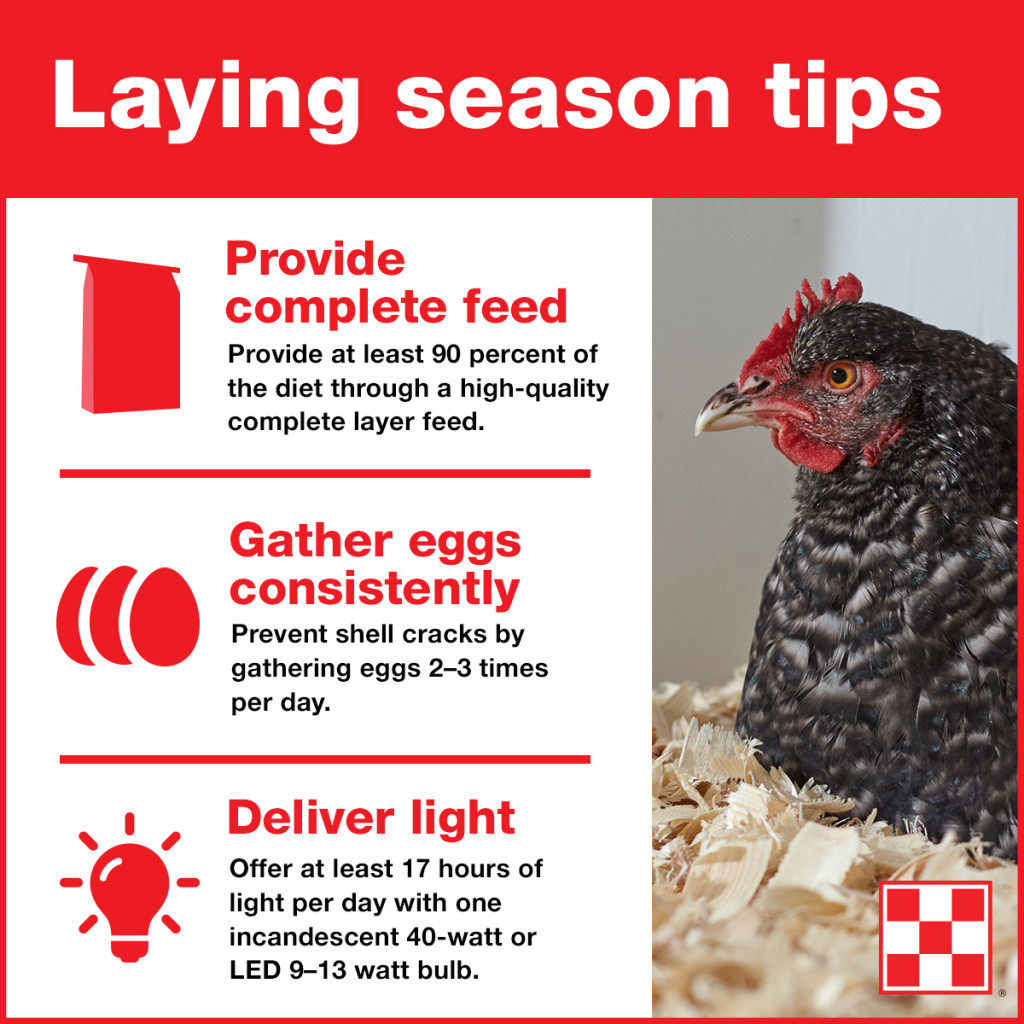Are you curious to know how often hens lay eggs in chicken husbandry? If yes, then you are in the right place! In this article, you will discover several fascinating facts about the egg-laying habits of chickens and how often hens lay eggs in chicken husbandry. Not only will you learn about the egg-laying habits of chickens, but you will also learn about the various factors that can affect the frequency of egg-laying. So, let’s dive in and explore the egg-cellent facts about how often hens lay eggs in chicken husbandry!
How Often Do Chickens Lay Eggs?

The average hen lays 4 eggs per week. However, this number can vary among individual hens and breed types. Some hens might lay one or two eggs a week while others can lay up to seven. The age of the hen also plays a role in how often she lays eggs. Generally, younger hens lay more eggs than older hens.
How Many Times Do Chickens Lay Eggs?
A hen will typically lay eggs every 25-26 hours, but this can vary depending on the age and breed of the hen. Some hens may lay eggs more frequently or less frequently, with some breeds being known to lay eggs every 16-17 hours.
How Often Do Hens Lay Eggs?
Hens typically lay eggs between two and seven times per week. This can vary depending on the breed, age, and health of the hen. It is important to ensure that the hen is in optimal health and has enough food and water to maintain a steady egg-laying schedule.
How Often Can a Hen Lay an Egg?
The average hen can lay an egg every 25-26 hours. However, this can vary depending on the breed and age of the hen. Some hens may lay eggs more or less frequently.
How Many Eggs Do Hens Lay?
The number of eggs a hen lays can vary, but most hens lay between two and seven eggs per week. Some breeds may lay more, while others may lay fewer.
How Often Can a Chicken Lay an Egg?
Most chickens can lay an egg every 25-26 hours. However, this number can vary depending on the breed and age of the chicken. Some breeds may lay eggs more or less frequently.
Factors that Affect How Often Chickens Lay Eggs
Age
Young chickens, or pullets, start laying eggs at around 18-22 weeks of age. Depending on the breed, the peak egg-laying period can last up to two years. After this time, egg production may decline, though some hens can lay eggs for several years after this.
Stress
When chickens are stressed, their egg-laying can be disrupted. Predators, extreme weather, or changes in their environment are all possible sources of stress that can reduce egg production.
Season
In the colder months, chickens may lay fewer eggs due to shorter daylight hours, and egg production is likely to drop off altogether in the winter. In the warm summer months, chickens can lay more eggs, but this may also depend on their breed.
Diet
A balanced and nutritious diet is key to keeping chickens healthy and producing eggs. If they’re not getting enough calcium and protein, they may struggle to lay eggs.
Lighting
Chickens require long daylight hours in order to lay eggs. Artificial lighting, such as a timer-controlled light, can be used to extend the daylight hours and encourage hens to lay more eggs.
The rate at which chickens lay eggs can vary greatly, but with the right environment and care, a single hen can lay up to 300 eggs a year. By understanding the various factors that affect how often chickens lay eggs, chicken owners can get the most from their flock.
Frequently Asked Questions
How Many Eggs Can a Chicken Hen Lay in One Day?
On average, a healthy chicken hen can lay up to five eggs in one day. However, this number can vary depending on the breed of the chicken and the age of the hen. Generally, hens that are younger than one year old can lay up to three eggs a day while older hens can lay up to seven eggs a day. In some cases, hens may lay up to twelve eggs in one day.
How often do chickens lay eggs?
Hens lay eggs an average of once per day, but this can vary depending on the breed, age, and health of the chicken. Egg-laying is strongly influenced by changes in daylight hours, and the peak egg-laying season typically occurs in spring and summer. Egg production usually slows or stops during the winter months.
How Long do Chicken Eggs Take to Hatch?
Chicken eggs generally take 21 days to hatch. During this time, it is important to keep the eggs in a warm, humid environment, and to turn them several times a day. Once the chicks have hatched, they should be given ample food and water and kept in a safe, secure environment.
How can I tell when a chicken is ready to lay eggs?
Behavior:
- Chickens will often become restless and start to wander around the enclosure.
- They may start to scratch the ground or peck at objects.
- They may also become more vocal and vocalize more often.
- Roosters may become more aggressive and protective of the hens.
Physical Changes:
- The chicken’s comb and wattles may become brighter and larger.
- The chicken may start to look plumper and rounder.
- The ovary will become larger and more visible.
- The vent may become more swollen and the feathers around it may become more glossy.
What Factors Can Affect the Number of Eggs a Chicken Hen Lays?
- Age: Younger hens tend to lay more eggs than older hens.
- Breed: Different breeds of chickens lay different numbers of eggs, with some breeds being more prolific layers than others.
- Season: Hens typically lay more eggs during the spring and summer months.
- Light: Hens need a certain amount of light to stimulate egg-laying. If they don’t receive enough light, they may not lay eggs at all.
- Nutrition: Proper nutrition is essential to a hen’s egg-laying ability. Not getting enough protein, vitamins, and minerals can lead to fewer eggs.
- Stress: Stress caused by overcrowding, predators, or other factors can cause hens to stop laying eggs.
Conclusion
The frequency of egg-laying for a chicken is highly dependent on the breed, age, and health of the hen. In general, most hens lay eggs once every 25-27 hours, with an average of one egg every three days. Chickens that are well cared for can lay eggs for years, with some breeds laying eggs for up to 8 years or more. By understanding the basics of chicken husbandry, you can ensure that your chickens are laying eggs at an optimal rate.
